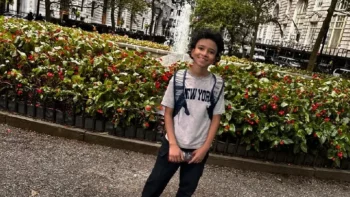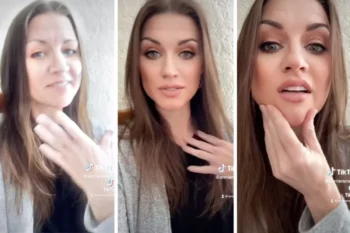
By Shayla Papik –
A 15-year-old boy from Manhattan was killed after his attempt at “subway surfing” in 2023. It was a stunt he had learned on TikTok. Nearly a dozen have died attempting the daredevil caper.
For the dangers TikTok poses to underage users, 14 states are suing the social media giant.

“Young people are struggling with their mental health because of addictive social media platforms like TikTok,” New York Attorney General Letitia James said on October 4, 2024. “TikTok claims that their platform is safe for young people, but that is far from true.”
Dangerous shenanigans are just one hazard. TikTok also harms kids’ mental health by inducing feelings of inadequacy, depression and addiction, the various suits allege. The hyper-personalized algorithm keeps kids engaged.

“TikTok’s design choices exploit the neurotransmitter dopamine, which helps humans feel pleasure as part of the brain’s reward system to encourage reinforcement,” the California suit argues. “Dopamine ‘rewards’ can lead to addictive behavior, particularly when rewards are unpredictable.”
TikTok has one billion users worldwide and 170 million in the U.S., in which it made $16 billion in 2023. The China-based social media app has illegally targeted the under-13 age bracket; an internal memo calls them the “critical demographic,” according to media reports. It’s easy to evade TikTok’s underage ban.But the younger users are even more vulnerable to TikTok’s addictive features. Its beauty filters create “self-hatred of appearance.” Its use of online currency gets used for child sex exploitation.
 “TikTok profits from the sexual exploitation of children – operating like a virtual strip club,” says Brian Schwalb, District of Columbia attorney general.
“TikTok profits from the sexual exploitation of children – operating like a virtual strip club,” says Brian Schwalb, District of Columbia attorney general.
About 43% of high school students who use social media frequently said that they felt persistent feelings of sadness or hopelessness, compared with 32% of those who used social media less often, a US Centers for Disease Control and Prevention study found. The teens were also more likely to say they’ve been bullied, both at school and online, and to have seriously considered suicide.
 TikTok pushed back against the allegations brought by the suits.
TikTok pushed back against the allegations brought by the suits.
“We strongly disagree with these claims, many of which we believe to be inaccurate and misleading,” TikTok spokesperson Alex Haurek said in a statement. “We’re proud of and remain deeply committed to the work we’ve done to protect teens and we will continue to update and improve our product. We provide robust safeguards, proactively remove suspected underage users, and have voluntarily launched safety features.”
Lina Nealon, director of corporate and strategic initiatives for the National Center on Sexual Exploitation, worries about TikTok and other social media platforms.
“No matter where children are on the internet, predators can and will find a way to reach them,” she says. “What is happening on TikTok is not exclusive to that platform. Instagram, Snap, Discord, and others have vulnerabilities and parents must be aware and diligent.”
To learn more about a personal relationship with God, go here
About the writer of this article: Shayla Papik studies at Lighthouse Christian Academy near Culver City, CA.



